Page content
Panels, Keynotes, and Discussions at FIBE 2024
Reading Time: 5 Minutes
Last month, Berlin hosted the inaugural FIBE fintech festival, a groundbreaking event that brought together ecosystem leaders and innovators, amazing fintech founders, and influential policymakers. Speakers and attendees discussed the future of fintech and financial services in a vibrantly positive atmosphere, with AI technologies, and the impact of AI on fintech and sustainable finance, as some of the hottest themes.
Here's a summary of the most interesting insights and discussions.
Berlin’s Tech Ecosystem Evolution: From Zero to Hero
Berlin's journey from a very undeveloped tech scene to a robust ecosystem was a key topic of discussion during the festival. Dr. Carolin Gabor, Managing Director at Caesar, Miriam Wohlfarth, Co-Founder of Banxware, and Sascha Dewald, COO of DKB, shared their perspectives on how the city changed for good.
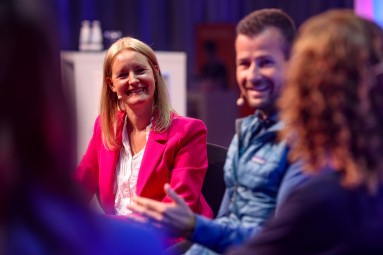
Dr. Gabor remarked on Berlin's transformation into a much more structured and professional tech hub over the past two decades. Something that Wohlfarth agreed on, pointing out that “the digital industry has grown so much here to become the job engine of the city," attracting global talent and driving innovation. Meanwhile Dewald emphasized the opportunities for infrastructure development and the cultivation of deep tech talent. The panel underscored Berlin's unique blend of business opportunities and fun, making it an ideal environment for young talents and startups.
In a separate panel, Mondu’s CTO Gil Danziger discussed Germany's supportive yet complex regulatory environment. Despite the challenges, these regulations create barriers to entry for competitors, providing strategic advantages for companies like Mondu that have invested massively in compliance. It was insightful to hear as well further stances from Yaron Golgher, CEO and Co-Founder of I Know First, and Martins Sulte, CEO and Co-Founder of Mintos, talking about Tel Aviv and Riga, respectively - highlighting their vibrant tech ecosystems, while underscoring the size and diversity of the creative talent pool accessible in Berlin.
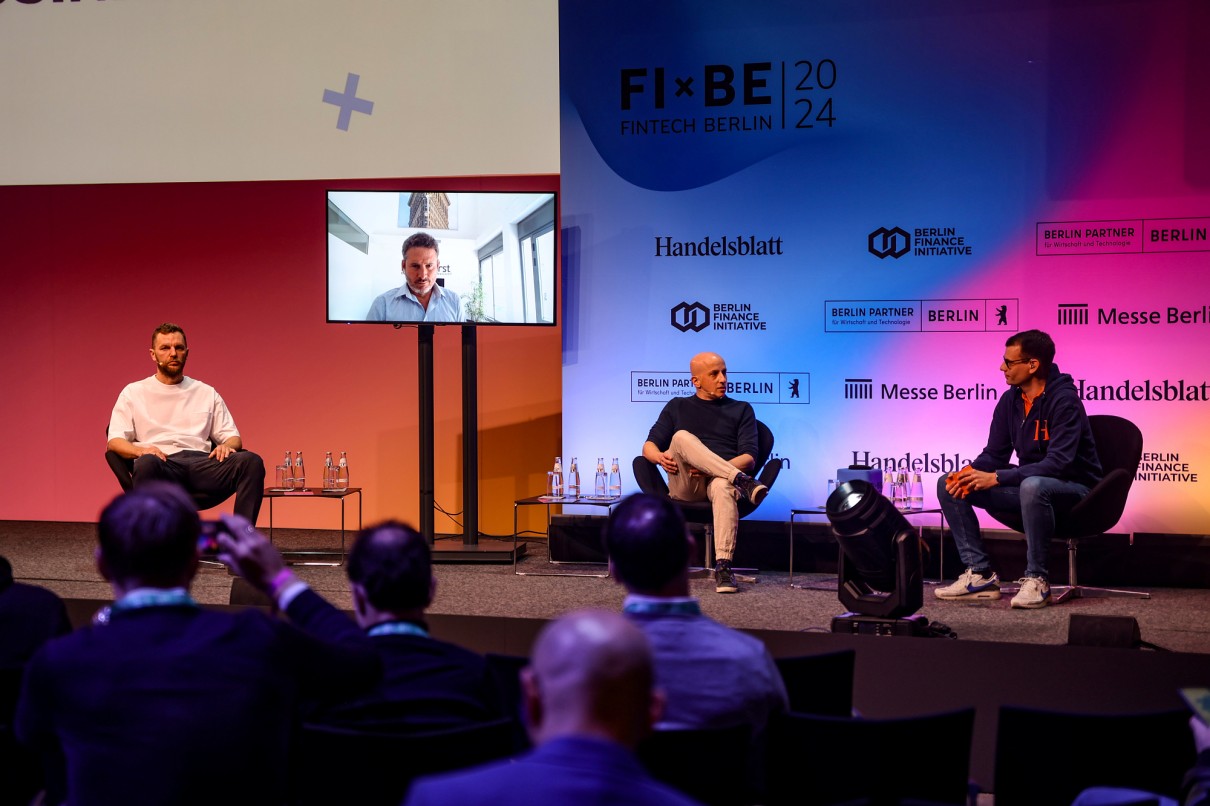
Navigating Uncertainty in Fintech
The resilience and adaptability of the fintech sector were discussed in the context of global geopolitical uncertainties and an industry that has already undergone various waves of disruption. Tamas Giorgadse, Raisin's CEO and Co-founder, emphasized the need for clear communication and concrete planning in challenging times and during crises. He noted how these practices have accelerated positive changes within his company, highlighting the importance of avoiding vague language to communicate effectively and garner more support from stakeholders.
Tatjana Kiel, CEO of Klitschko Ventures, and Brett Scott, an author, activist, and former broker, both expressed skepticism about excessive digitization and the risks associated with a fully cashless society. "The standard ideology says that it is inevitable to go cashless, but the reality is very different," said Scott, agreeing with Kiel that we need a balanced approach and prepare for contingencies. They stressed that we can’t rely only on digital solutions and automation. All three agreed that we need to get more actively involved in strengthening our democracies, starting locally.
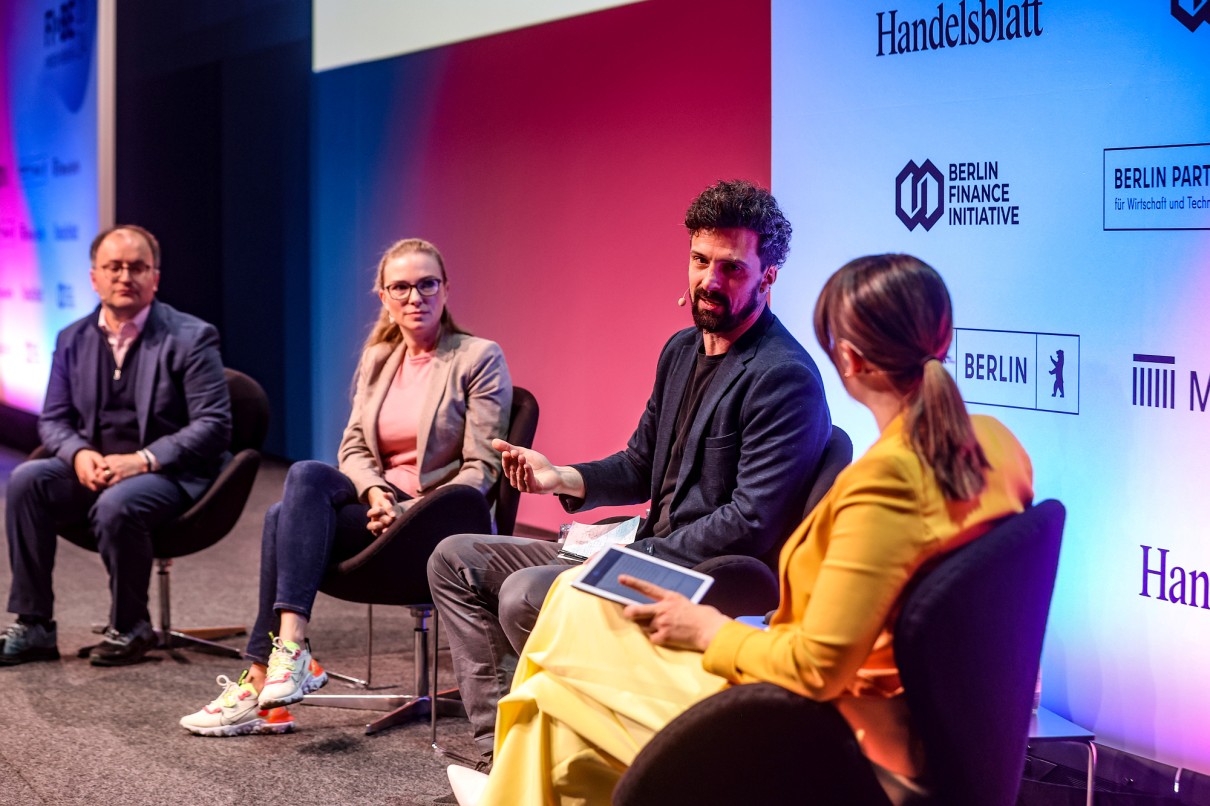
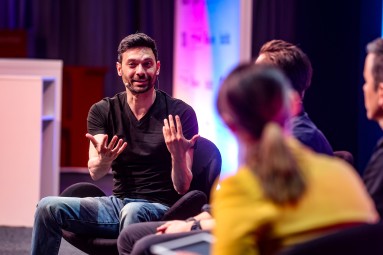
Harnessing AI for Financial Innovation
The transformative power finance AI was a recurring theme. Ali Niknam, CEO and Founder of bunq shared how they leverage AI to enhance customer interactions, revealing that 30% of their customer support is fully automated, with another 30% being AI-assisted, and with plans to increase these percentages further.
Adrian Locher, CEO and Co-Founder of Merantix highlighted how generative AI can outsmart cybercriminals but also noted that this goes both ways since defenders and attackers have access to the same fraud detection technology. "The tech is neutral," he said. "We need to develop tools and train people to help protect themselves." Locher emphasized the need for continuous tool development and training for both banks and fintechs to stay ahead in the cybersecurity arms race.
While Locher and Niknam seemed quite concerned about the over-regulated environment in Europe, Maik Taro Wehmeyer, CEO and Co-Founder of Taktile, seemed more optimistic about the new EU AI Act, appreciating its role in providing regulatory clarity, with the potential to foster further innovation in this field.
Inspiring Founder Stories and Growth Strategies
Insights from fintech founders and international leaders provided valuable lessons on growth strategies to all the people attending. If Douglas Feagin, Senior Vice President of Global Business at Ant International, emphasized the importance of their extensive network in providing cross-border payment solutions and fostering global economic connectivity, Alexandre Prot, CEO and Co-Founder of Qonto, related the company's origin, which originated from personal struggles during his first entrepreneurial venture, and Marc-Alexander Christ, Co-Founder of SumUp, discussed their evolution from a point-of-sale provider to offering comprehensive software solutions for SMEs.
Prot and Christ provided practical examples of their challenges in expanding their companies internationally, advocating for a unified regulatory framework across Europe to support the growth of scaleups and the broader fintech ecosystem.
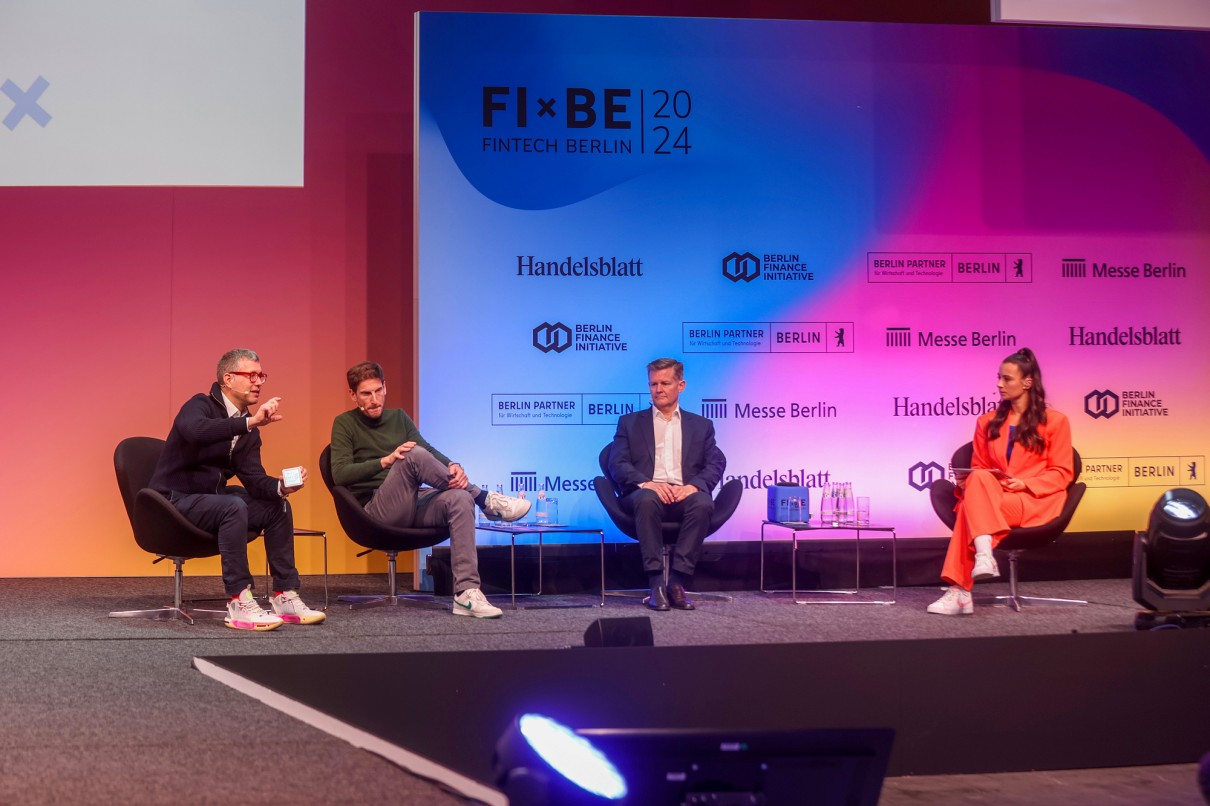
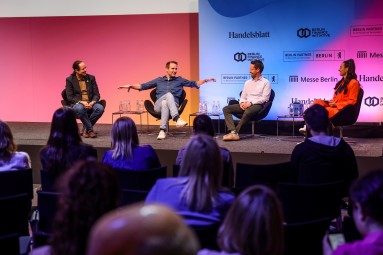
Strategic Investors, Exits, and De-Exits
Julian Lange, COO at Upvest, Joerg Landsch, Head of Central Corporate VC at Deutsche Bank, and Tuomas Toivonen, CEO and Co-Founder of Holvi shared their experiences with strategic investors, exits, and buybacks. Lange highlighted the importance of aligning investment rationale with business objectives, citing Upvest's successful partnership with Blackrock. Toivonen recounted Holvi's journey of selling to BBVA and five years later executing a management buyout, emphasizing their commitment to supporting freelancers and SMEs.
Everyone recommended startup founders to reflect if exiting is their goal, and if that's the case to start having conversations early on with investors and make sure their cap table is in order and their company’s structure is ready for when an eventual opportunity may eventually arise.
Leadership Perspectives for a Better Future
FIBE has been more than just about great founders, investors, and tech ecosystem leaders. We’ve also been inspired by remarkable policymakers and politicians who provided valuable points of view on the current challenges and the future ahead—not just in the fintech space but for us as a society as a whole. In this sense, Sanna Marin, Former Prime Minister of Finland, and Robert Habeck, Germany's Federal Minister for Economic Affairs and Climate Action, delivered some of the most impactful keynotes.
Both leaders called for a united Europe to reduce dependencies on authoritarian countries. Marin urged Europe to shed its normality bias and reduce external dependencies to defend its democratic values. She emphasized the importance of European investment in research and the need for immediate action to counter global political shifts, particularly in light of Russia's aggression in Ukraine.
Habeck stressed the importance of a startup mindset in civil society while discussing the government's role in the startup ecosystem and the Startup Factories introduced in Germany to boost university spin-offs. Both stressed that the private sector should play its part in tackling global challenges like wars and climate change, advocating for a renewed collective belief in progress.
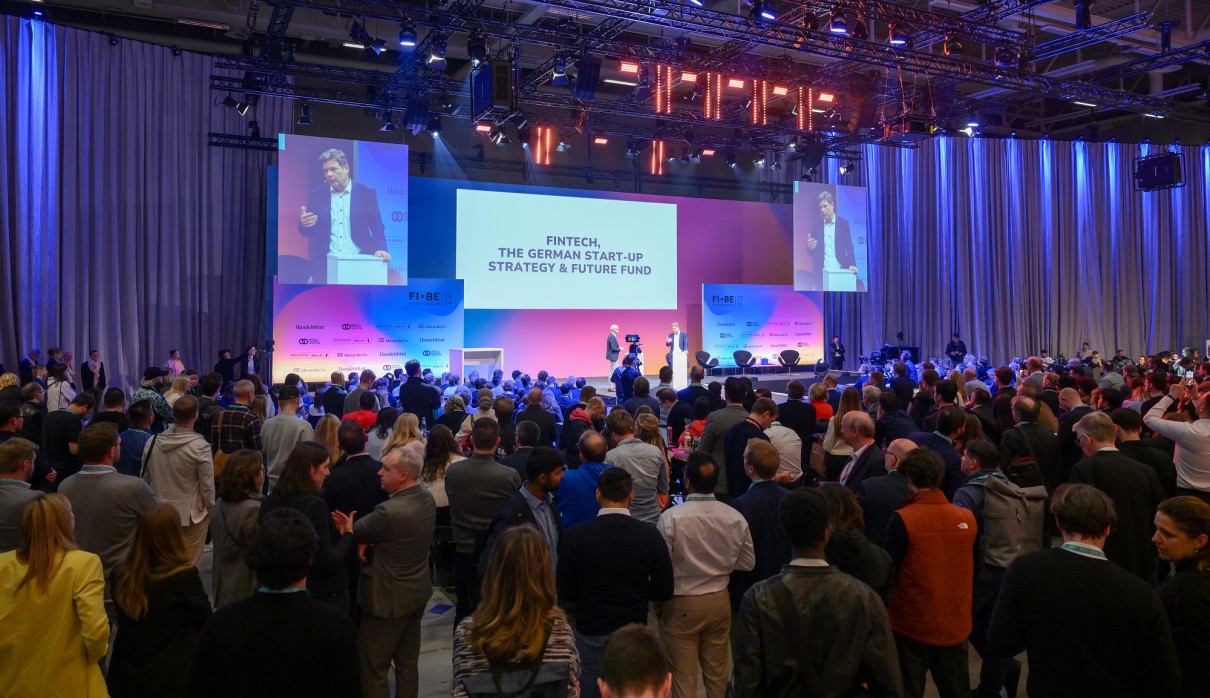
Wrapping up and Looking Ahead to FIBE 2025!
FIBE Berlin 2024 was a platform for meaningful dialogue, new partnerships, and the exchange of ideas that will help shape the future of fintech, the tech ecosystem, and consequently, how our society will look—from the transformative potential of finance AI to the critical importance of improving ESG systems and shifting towards sustainable finance. As the discussions from the festival continue to resonate, all these discussions and insights serve as a call to action for stakeholders to pursue innovation responsibly and collaboratively.
If you enjoyed this year, make sure to mark your calendars for April 9th-10th, 2025, because the next FIBE will be even better!

